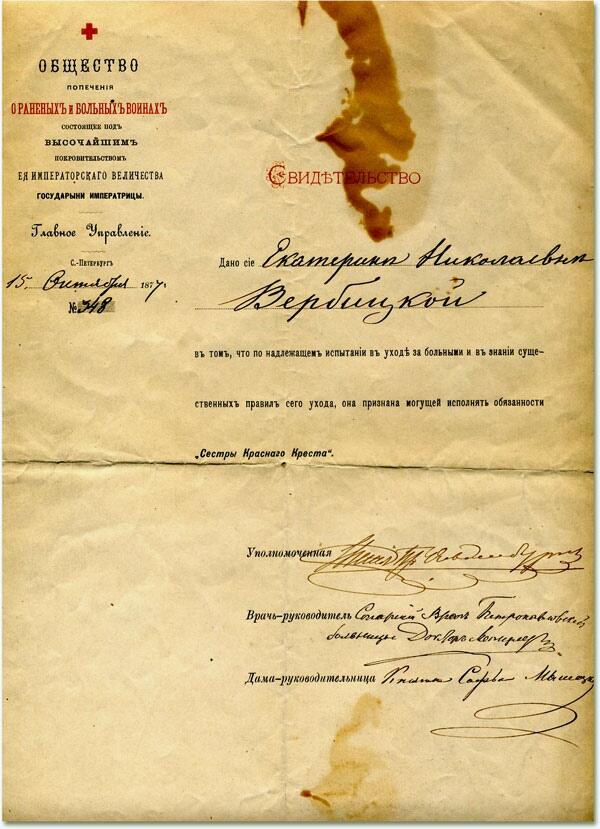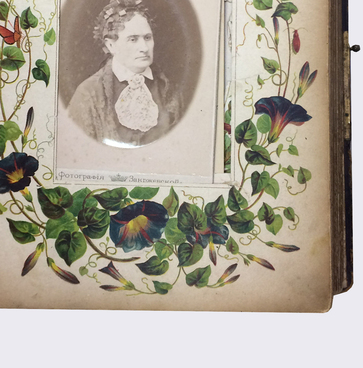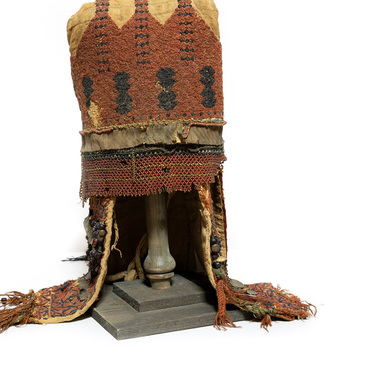Ekaterina Nikolaevna Verbitskaya’s youth (married name Khlebnikova) seems to be a textbook illustration of the life of a girl from a noble family. The eldest of the daughters of the actual state councilor Nikolay Osipovich grew up in St. Petersburg, played piano, spoke three languages, read a lot, and took care of numerous pets that inhabited the general’s apartments.
After graduating from the gymnasium, Ekaterina entered the Smolny Institute of Noble Maidens, where she developed a keen interest in Russian history and decided to devote herself to this discipline. However, her conviction that “a historian with a diploma should be a historian in deeds”, which meant engaging with the current events happening in the country, forced her to abruptly change her life. She graduated from the courses of Sisters of Mercy at the Society for the Care of Sick and Wounded Soldiers, left Smolny and, against the wishes of her relatives, found herself “on the brink of death, in the fire” of the Russo-Turkish War.
This crucial episode in the biography of Ekaterina Nikolaevna was well known to her children. Velimir described it in “The Night before the Soviets”, and Vera — in her memoirs. The poetic lines “she saved lives as a nurse <…> She cared for the wounded, offered them affection and love…” are specifically clarified with a footnote that the young sister of mercy saved the lives of several patients, who, according to doctors, were as good as dead.
Having survived trying military days and returned to a peaceful life, Ekaterina Nikolaevna continued her “historical” ministry. As a Smolny graduate, she had the right to teach — and so she taught reading to children from the lower classes for free and worked in orphanages. Later she was associated with the Narodnaya Volya movement and maintained relations with Vera Figner for a while.
Family life also required dedication and deep, potent love from Ekaterina Nikolaevna. For many years, she accompanied her husband, the ornithologist Vladimir Khlebnikov, in his service-related travels: Baskunchak, Kalmyk steppes, and villages of the Simbirsk Governorate; she instilled in her children a love of literature, history, and art.
Having survived four of her five children, she did
not lose her strength of spirit and humanity and in old age showered her
grandson, May Miturich-Khlebnikov, with affection. According to Vera’s memoirs,
the boy enjoyed “Grandmother’s all-forgiving attitude”.



